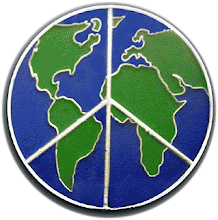Hi All!
I am getting excited to leave for my trip, and thought I would write an overview and explain a little more in detail about my trip.
My trip will be set up in three phases. 1/3 of my trip will take place in Uganda, 1/3 of my trip will take place in Rwanda and the last 1/3 of my trip will take place in either of the two countries of my choice. The last part will be the most independent. I will be working on an project separate from the rest of the program. The research project will be of my choice and I can choose to do my research and independent study in either Uganda and Rwanda. Below is more information on what I will be doing prior to my independent project.
Uganda
The Uganda segment of the program is divided into two parts: the first is based in the northern town of Gulu and the second in the capital city of Kampala.
Gulu
The two-week period in Gulu focuses on the human cost of conflict and on local communities’ and civil society organizations’ efforts to rebuild war-affected districts of northern Uganda. Short excursions and lectures by local professors and professionals illuminate the history of the conflict, conditions in Internally Displaced Peoples camps and the process of resettlement, the re-integration of ex-combatants, and the role of civil society organizations and local cultural institutions in promoting sustainable peace and economic development. Two-week homestays with Acholi families help students adapt to life in Uganda, and afford a privileged, personalized perspective on conditions in the region.
Kampala
The program then moves to Kampala, Uganda's capital city, for lectures and site visits that address national-level issues that have contributed to the conflict in the north. Lectures by faculty from Makerere University and other experts focus on topics such as constitutionality in Uganda, Uganda’s foreign military entanglements, and the role of the International Criminal Court in pursuing justice for aggrieved parties in the north. The cultural and political history of the southern part of the country, addressed through lectures and visits to sites of historical and cultural importance, helps students understand approaches to the northern conflict at the national political level, even as they reveal the depth of the roots of political instability in Uganda.
Rwanda
Like the Uganda segment of the program, the Rwanda segment is also divided into two sections: the first is based in the southern town of Butare, and the second in Kigali, Rwanda’s economic and political capital.
Butare
Students will spend one to two weeks in the university town of Butare attending lectures at the Center for Conflict Management at the National University of Rwanda and visiting nearby cultural and historical sites. In Butare, the program examines the origins of the genocide in Rwanda’s cultural and political history, and focuses on the broader political and philosophical issues implicated in Rwanda’s efforts to build both state and society in the aftermath of genocide, such as memorialization, reconciliation, justice, and the meaning of nationhood.
Kigali
During the two-week homestay in Kigali, students turn their attention from theory to practice, focusing on organizations and institutions engaging in post-genocide work of various kinds in preparation for the Independent Study Project period. Students will visit a number of organizations and institutions, including gacaca, Rwanda’s traditional court system, the Gisozi Memorial and Information Center, and Ibuka, an organization working for the well being of genocide survivors. Host families provide invaluable perspectives on Rwandan history and politics and facilitate students' entrée into the life of the city.
Well, I hope everyone has a little more of an idea of what I will be doing.
Love,
Michelle
Friday, January 2, 2009
Subscribe to:
Post Comments (Atom)

No comments:
Post a Comment